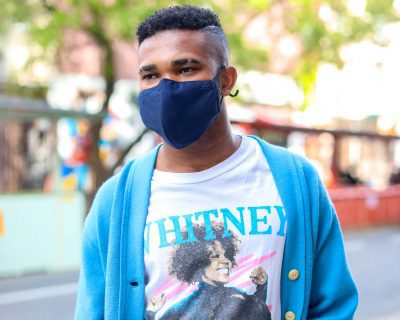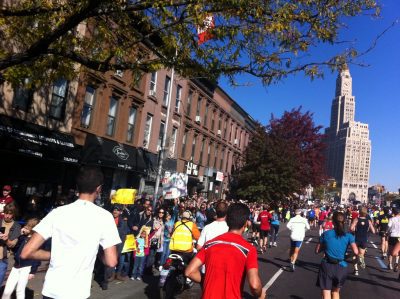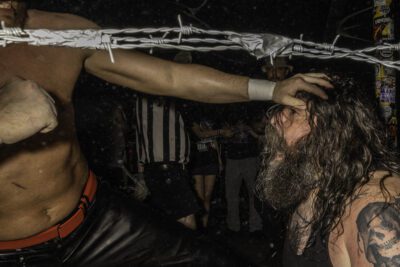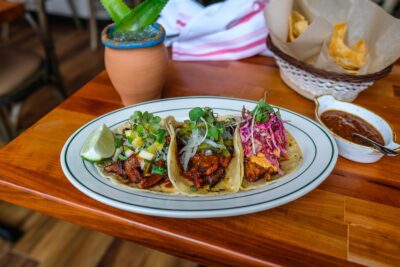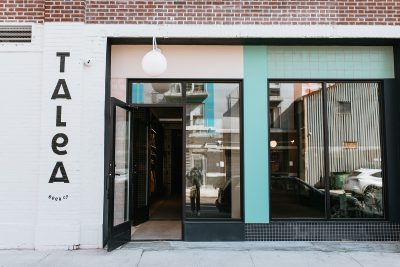Emilia Ortiz: An Unorthodox Spiritual Healer Blossoming in Brooklyn
PHOTOGRAPHY Stevie Love (@stevielove)
STYLING Porsha Thelusma (@weekendonweb)
JEWELRY The 8th Elementt (@the8thelementt)
Some people are just born knowing their earthly purpose. Such is the case with spiritual advisor and Bruja Emilia Ortiz. She’s not your typical happy-go-lucky advisor either— Ortiz gives it to you raw just like her very straight-forward personality.
Hailing from a Hispanic household in Flatbush, Ortiz learned the importance of holding onto your roots while moving into the future, a value her dad instilled in her since a little girl. She has no problem calling out cultural appropriation, being fearless in society, nor speaking with her heavy native accent, which is a hearty mix of Brooklyn and Puerto Rico.
Emilia is a breath of fresh air amongst countless spiritual healers on the internet who take a very generic approach to delivering their messages. She is like the girl next door who always knows just what to say when you feel like your life is spiraling out of control. It’s no surprise that she has a growing cult of followers on social media and has been gaining the attention of celebrities seeking a down-to-earth healer who isn’t afraid of giving some real advice. We caught up on a warm Tuesday afternoon at the Brooklyn Botanical Garden to discuss everything from stigmas attached to her practice to the importance of setting clear boundaries.
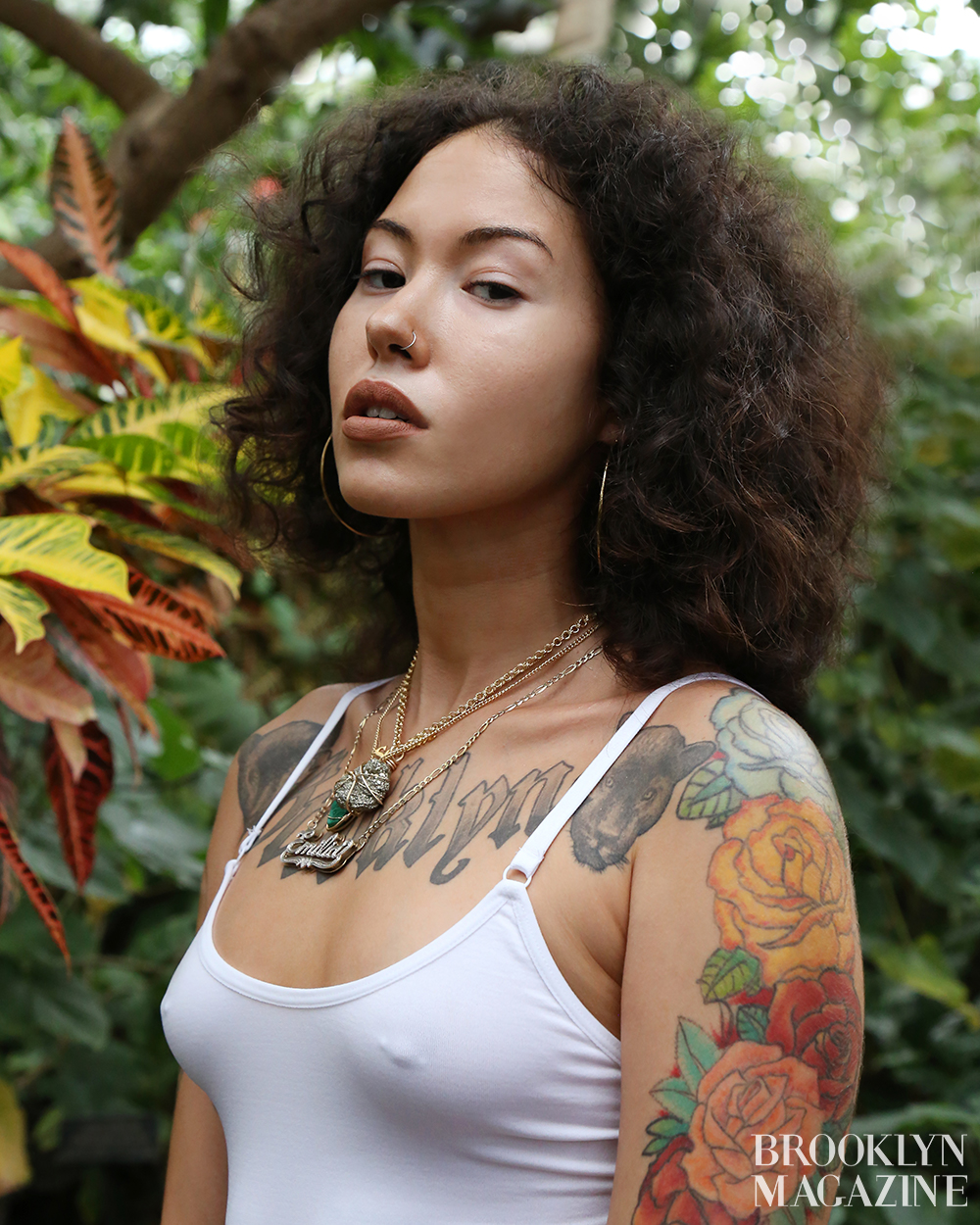
What does being Latinx mean to you?
Well being Puerto Rican, my father was Afro-Boricua, I grew up understanding a lot of the African heritage as well as other aspects of the culture including the indigenous aspect. So, it’s interesting for me to see how far we’ve come as far as everyone decolonizing themselves.
It’s a little frustrating with the political climate in America right now and what’s going on in Puerto Rico. Puerto Rico is supposedly a commonwealth or US territory, yet what is happening over there isn’t covered on the news [here] which doesn’t make sense. It’s sad to live in a place where your people or your island and homeland are not necessarily respected. But at the same time it’s a beautiful thing because, culturally, it makes us stronger. Being Latinx is special.
What was your experience growing up both inside and outside the home?
It was interesting. I was told that my culture was something that a lot of people didn’t understand or wouldn’t understand, like Brujeria. I always understood that there’s a stigma around it and knew that people outside of the practice wouldn’t get it. I had a lot of issues with other things too like my features, especially my hair. It was always either braided or styled. Between me and my brother I had the kinkier, “nappier” hair so only he got to wear his hair down. I resented having to get braids and things like that but I was told ‘listen, this is for the sake of being smart.’ I was also made fun of by white girls, including girls who were my friends at the time, for my hair. Today, I still get questions like why are your eyes one way and your hair another? At the same time, I met a lot of people who were intrigued by me. It was a little weird growing up in Brooklyn.
Speaking of, Brooklyn has been going through major changes. You were born and raised in Flatbush, which is an area going through a transformation due to gentrification. What are your thoughts on the rapidly changing environment? Do you feel a spiritual shift?
I definitely feel there has been a shift. There’s also a lot of shift in who has become the face of Brooklyn. A lot of the older stuff is being removed and new [property] is being brought in but it’s not all being done the right way. There’s definitely tension in the air. For example, the cops are called when people are sitting in front of their building playing music all day or all night because they have a backyard. This stuff isn’t being done the right way so there isn’t a balance in how situations are handled and things just keep being disrupted. I’m hoping that we’re moving towards a time where there’s gonna be more understanding.
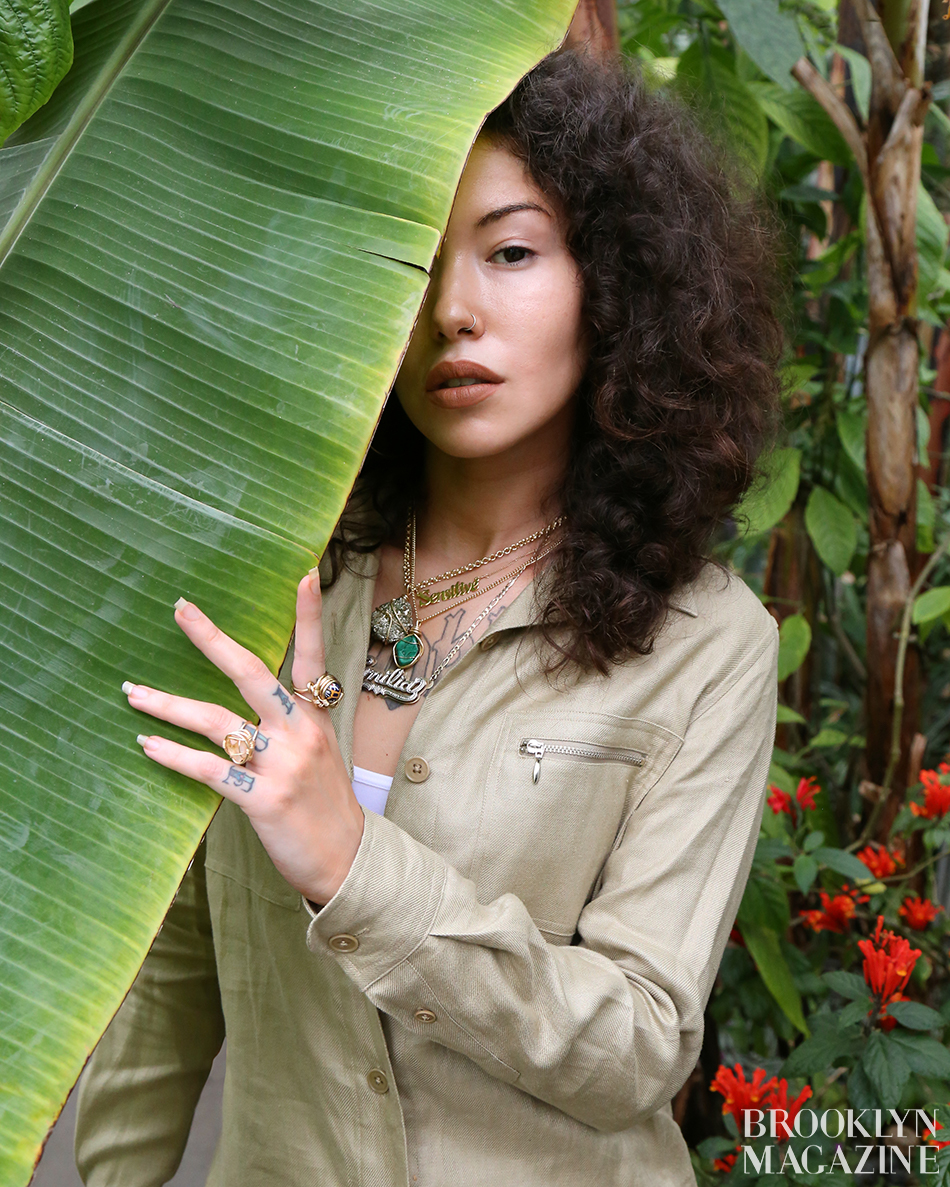

I grew up in it my whole life so I knew I was gonna do something related to it. My dad passed away and that’s the reason why I started doing it the way I did. I grew up in his family who pushed me to be join this line of healing. I just needed to figure out how to make it work for me because I didn’t really see anyone I identified with within this work.
That’s pretty cool because many people tend to have one foot in and one foot out of their commitments when they are first starting out— a “just in case,” because they’re scared it won’t work out.
Well, I grew up in this work so it’s a bit different. This is also why I often have a hard time telling people how to start. It wasn’t something where I had to go out and figure it out. Even as a kid, being as psychic as I am, my future path made itself very present very early. Figuring out how to do it on a bigger level was the only thing left that I needed to do.
What were some of the reactions from people around you?
Most of my friends also weren’t surprised because it was just something that I was consistently open about. I’ve always been unconventional out of [all of my friends] so they were was just like ‘well, that makes sense.’
What’s the one misconception that you feel people have about your practice?
There are misconceptions about this work in all communities, from white to ones of color, because there’s so much trying to teach us [people of color] to stray from our ancestral roots and to turn to Christianity. That’s why you’ll hear lots of things like, ‘Haitians are gonna put a hex on you!’ It’s like “come on, most of them don’t give a f*ck about doing that to you it takes too much effort.” Anyway, one of the biggest misconceptions about my practice, is that [spiritual advisement] resembles some theatrical Hollywood production because that’s what is depicted in movies. It’s really not.
A big misconception that people have of me specifically, is that I’m gonna just give you all the answers to your problems. The thing is though, even if they can, most of us don’t want to because that doesn’t really help you. It’s not about us not wanting to give away secrets, it’s just that it doesn’t allow clients to grow and learn. Many people also think that this work is evil or simply a tool to get someone to love them. They always simplify it to some romanticized version of things and what they don’t understand is that most of this magic, rituals, spells, and spirituality was used to help the oppressed because they came about from our ancestors’ original beliefs. Santeria is a mix of various components and that’s because it was used for us to ascend ourselves from our oppressors. Ultimately, it is supposed to be used to help you feel empowered. Conversely, people even say to me that they don’t think readers and healers should get paid.
Wow, that is a bold statement. How do you feel about that?
Yeah, I had somebody send me this whole post saying, “If you’re accepting payments for this then you are feeding into a low vibration. You should just do this for the opportunity.” I’m all for people making cake off this sh*t because our ancestors could not receive the benefits of doing this work the way we can now and they were punished for it so much. Meanwhile, the church was collecting money every single week. Getting compensation is reparation in a sense, especially since so many of us have been disconnected from our original culture and this is all we have left.
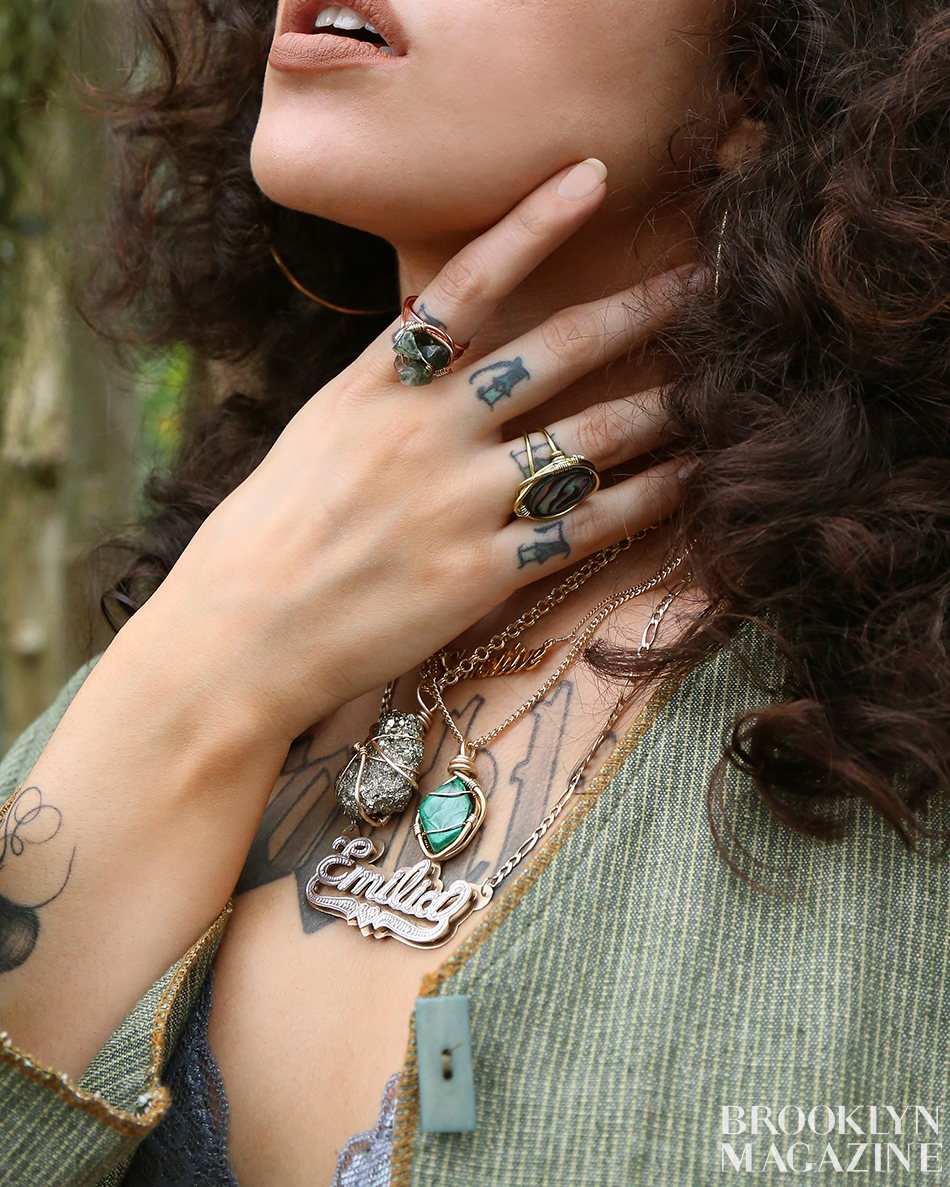

You encounter all types of people from culture vultures to prospective clients who want guidance. How do you maintain spiritual balance when you come into contact with so many people and so many different energies every day?
I set really serious boundaries. I’m one of those people who will not answer certain inquiries in my DMs. I have a whole process that I go through when making appointments. Things like that set up a level of protection for me because it turns people who aren’t serious and those who aren’t gonna respect the work away. There are also times where I just have to tell people ‘no’ which is hard because I’m an empath and I end up feeling guilty. However, there are times where I know damn well I can’t help anyone or myself if I’m not doing what I need to do for myself.
What’s the number one self-care tip that you would give to anyone who’s feeling hopeless or in despair?
That one is a little difficult because we all feel that way for different reason, but what I generally tell people who are going through something like that is that they have to remember that [those feelings] are a moment. While you’re going through a crappy moment and it feels lonely, there are also other moments in life when we haven’t felt hopeless but it’s hard to remember them because all we can feel is the pain at the moment. You’re not in the past; you’re not in the future; you’re in the now.
Reminding yourself that this experience is going to pass makes things a bit easier. The other thing to remind yourself is that sometimes you have to hit your lowest point because you need somewhere to put your feet. It’s better to have solid ground to put your feet on than nothing at all. Before we hit that hopeless stage, we are falling and we say things like “yo, I feel like everything is crumbling down around me but I don’t know what to do.” As we watch our life unravel we start to feel overwhelmed, when we just need to stop for a moment and think “yo, I hit rock-bottom and I watched it all happen. I know what went wrong. I just need to put my foot down somewhere so I can move forward from here.’ From there, you can make a game plan.
What’s next for you?
I’m working on a whole bunch of different things. I am still in the midst of doing sessions, speaking at multiple events and doing interviews for magazines. I’m also working towards eventually having my own show where I basically do what I do on Instagram for a much broader audience. You know, something more in-depth. In the meantime, I’m still doing my thing in addition to writing, so a book might be released before a TV show, who knows?
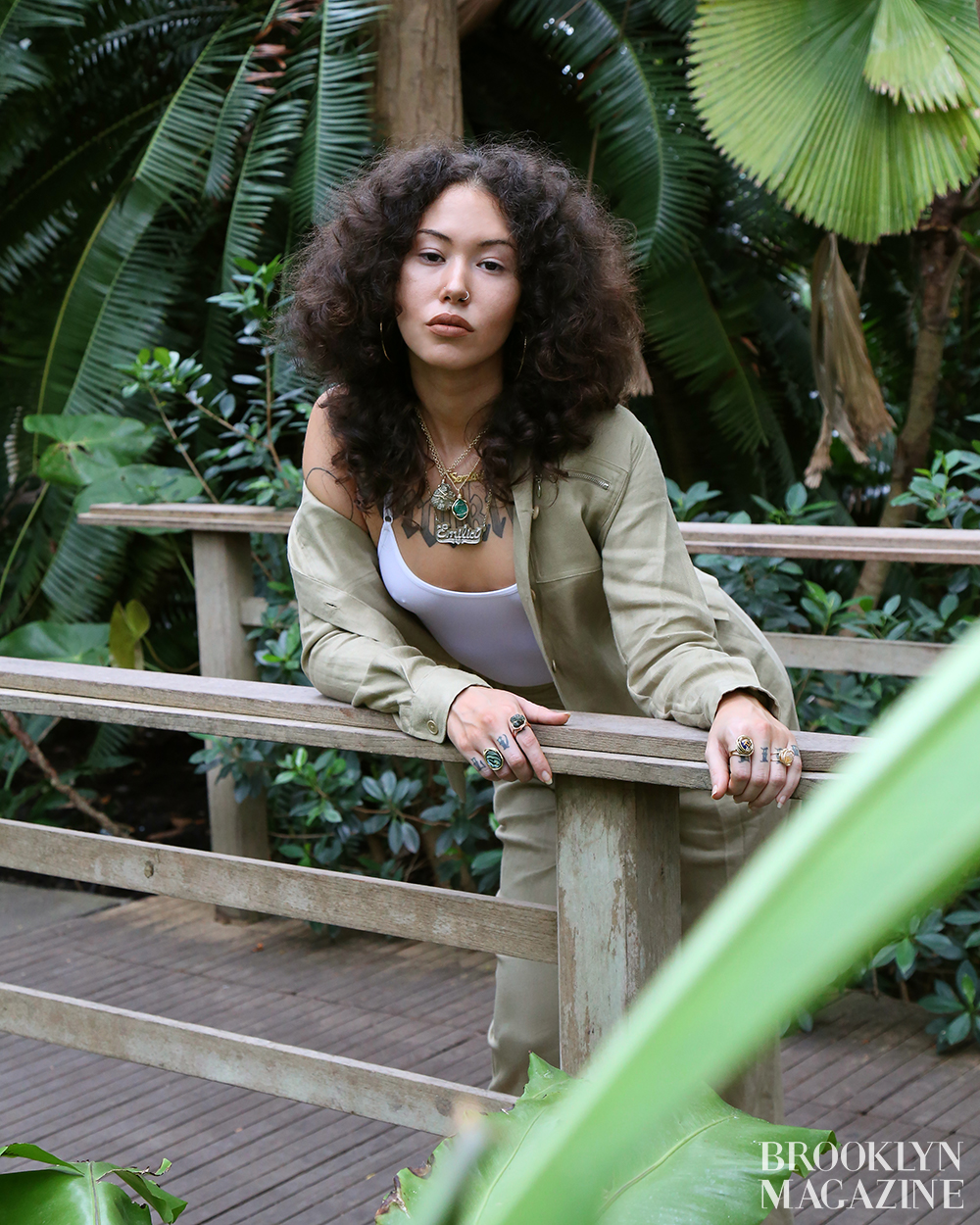

You might also like 

















